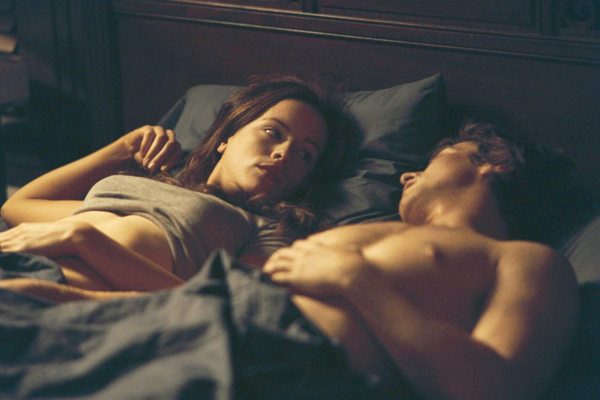Movie review by Greg Carlson
“Laurel Canyon” could have been a really good movie. Writer-director Lisa Cholodenko, whose “High Art” covered some of the same thematic territory, has the right cast, the right setting, and the right crew – especially in cinematographer Wally Pfister, nearly as masterful here as he was in “Insomnia.” The problem is, Cholodenko provides a tempting set-up and then plays it far too safe when the time comes to really deliver a wallop. A Valley Girl herself, Cholodenko has an unblurred, almost crystalline lucidity about the bewildering strangeness of greater Los Angeles – a locale that is as much a state of mind as a physical address.
Christian Bale (sporting an almost impossibly bad hairdo) and Kate Beckinsale both tackle American accents as Sam and Alex, a pair of Harvard Medical School graduates who relocate to L.A. from Cambridge. The uptight, straitlaced Sam has arranged to crash temporarily at his mother’s Laurel Canyon spread while she retreats to her Malibu beach house. The problem is, mother Jane, a prolific and somewhat legendary record producer (bookshelves are cluttered with photos of her with Joni Mitchell, David Bowie, and Bruce Springsteen), has split with her latest beau, and he is holed up in the beach house while Jane toils away with a young band in her home studio.
Reluctantly, Sam agrees to share the space, but insists that Alex look for a place to rent while he puts in long hours at the hospital. Alex’s enthusiasm for new digs quickly wanes when she is sucked in to Jane’s carefree orbit of sex, drugs, and rock and roll. Abandoning her doctoral dissertation on the reproductive habits of fruit flies, Alex spends more and more time smoking weed, consuming tofu steaks, and lounging around the pool with the musicians. Meanwhile, at the clinic, Sam’s head is turned by a gorgeous fellow resident (Natascha McElhone) who seems more than eager to seduce him.
There is an unfortunate obviousness about the way in which Sam and Alex drift away from each other, and worse yet, Cholodenko offers zero edge when exploring the sexual transgressions that endanger Alex and Sam’s relationship. Beckinsale’s Alex seems tame, restrained, and closed off even when she is supposed to be at her most reckless and adventuresome. As Sam, Bale expertly conveys the aura of a son whose entire childhood was damaged by his irresponsible mom, but short of a pair of acutely focused scenes, the audience is expected to take his bottled-up rage almost for granted.
The film’s saving grace is the superb performance by Frances McDormand as Jane. Running circles around her young counterparts, McDormand adds another bulls-eye to her remarkable filmography. McDormand understands that Jane is a woman who pursued, and largely accomplished, her life-dreams with an urgency and sense of mission that few people ever experience, even though she might have been hurt a few times along the way. Sam resents her for this, but the audience certainly doesn’t: Jane’s good humor and dauntless spirit always trumps her son’s mopey brooding. Too bad we didn’t get to spend more time with her.
